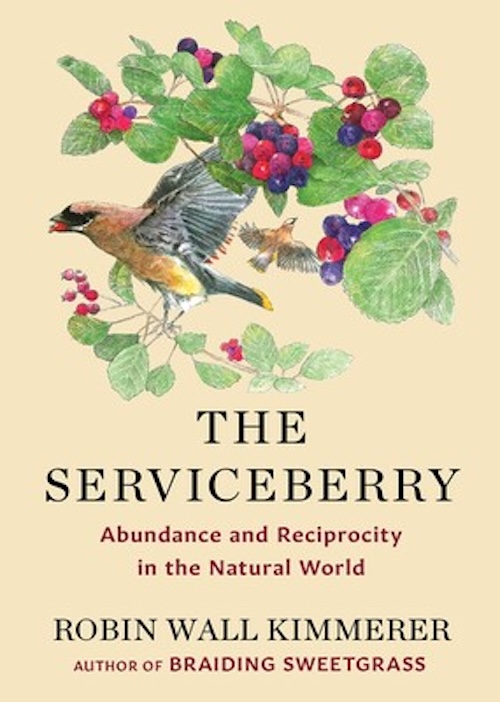Greenfield, Mass. (Special to Informed Comment; Feature) – No one wrote more powerfully about humans’ poisoning the Earth and its consequences than biologist Rachel Carson–with a focus on one contaminant, the pesticide DDT. She traced its toxicity through the food chain of nature and the loss of beneficial insects and birds, and then warned of the ultimate destruction of the natural world. Other environmental writers of the time were perplexed by the tidal wave of impact Silent Spring had compared to their books: it was both the accuracy of her science and the powerful beauty of her science writing. The award-winning Silent Spring was translated into all the languages of the industrial world, influenced key environmental legislation and spurred the creation of the US EPA. It was a gift that kept on giving. That was 1962.
In every aspect of industrial life, we are on the precipice of a much greater loss of Nature today, and it’s not solely due to climate crisis. Robin Wall Kimmerer, whom I think of as a contemporary Rachel Carson (and more), has written her third book, “The Serviceberry: Abundance and Reciprocity in the Natural World.” This Indigenous botanist contrasts the invisible world of generosity, mutuality and abundance that Nature offers with the capitalist economy of deliberately induced scarcity for the sake of profit and ourselves as individual competing consumers. The book is an uplift–spiritual and intellectual–by the truth of its insights and beauty of writing.
The serviceberry, a small tree, is known by multiple names, a sign to ethnobotanists of its cultural importance, among them shadbush, sarvis, juneberry and saskatoon. Beloved for its wonderful-tasting fruit and medicinal uses, its bloom signals that the ground has thawed and indicates that the shad are running upstream. The book was inspired by an invitation from her neighbors to the author to pick and enjoy serviceberries that they sell, for her own pleasure as were birds doing “in the buckets of their bellies.” How will she respond to her neighbors’ gift–she will gratefully share her heavy, bucketful of berries with friends. And thus begins an exploration of another economy, the gift economy of the natural world and one with enormous untapped lessons for the human world.
The body of Mother Earth–water, soil, air and plants–sustains our life with plant and animal food; how should we reciprocate? We care for the Earth’s body as a gift to our existence. Doing so, our whole relationship to the natural world changes: we must support Nature’s organic life as her life supports us. Aware of Nature as a gift of life, wouldn’t we care for it more wisely, maintaining its beauty, its fruitfulness, its biodiversity, its organic health, and protecting its web of reciprocity, the author asks?
Imagine, she challenges us, human economics modeled after ecological systems. There is enough if we share it, there are intelligences in Nature that we humans might learn from and identify ourselves as ecosystem-sharing citizens first and consumers second. Cooperation played a major role in evolution, research is finding, not just survival of the fittest. We have models in Nature for ourselves: the network of underground mycorrhizal fungi between trees, for example, gives nutrients reciprocally and freely.
Group cooperation – a better model for survival of the planet than individual competition, has served a major role in evolution. Capitalist market economies manufacture scarcity for the sake of profit by privatizing resources like bottled water rather than seeing them as public gifts to be cleaned, if polluted, and preserved for public good. The economist Dr. Elinor Ostrom won the Nobel Prize for challenging capitalist economic doctrine by showing that “collective action, trust, and cooperation can lead to mutual well-being of land and people without degrading commonly held resources,” a rebuke to the doctrine of the Tragedy of the Commons.
Robin Wall Kimmerer’s compelling call for growing a gift economy alongside of the human industrial economy is only more urgent given the findings of the Global Biodiversity Framework adopted in 2022 by almost 200 nations to conserve and restore biodiversity for future generations. About “one million animal and plant species are threatened with extinction,” destabilizing the foundation of life on Earth, food, water and air. Yet, only six countries committed to the goal of restoring 30% of degraded lands.
A final point about humans putting off “til tomorrow what must be done today. The President of Brazil wants to drill for oil in the Amazon, his position being that oil revenues today could finance green energies tomorrow.
President Lula da Silva, we can’t wait! We have reached 1.6 degrees Centigrade rise in temperature since 1850, and risk tipping points (points of no return)–in loss of major glaciers, rainforests turning to savannah, nearly uncontrollable fires like the L.A. fire, catastrophic flooding like we have seen all over the world. The scarcity economy, which cultivates consumerism and individualism at the expense of the gift economy, could lose as much as 50% GDP between 2070-2090. We are a species, with many, many exceptions, who has lost touch with our world of Nature.



 © 2025 All Rights Reserved
© 2025 All Rights Reserved